Andrew was put to death on an x-shaped cross in what is today Greece. His death is still remembered today in the "Cross of St. Andrew", also known as the flag of Scotland. What is amazing in this record from Christian history is the boldness Andrew spoke with. This is a Holy Spirit given boldness, and a sure sign of one who has already decided that whether his teaching brings him joy or suffering, he will not stop. It also reminds us how honored the apostles were to follow their Lord Jesus Christ in His sufferings, even unto death.
The Acts of Andrew
What we have all, both
presbyters and
deacons of the churches of Achaia, beheld with our eyes, we have written to all the churches established in the name of Christ Jesus, both in the east and west, north and south. Peace to you, and to all who
believe in one
God, perfect Trinity,
true Father unbegotten,
true Son only-begotten,
true Holy Spirit proceeding from the
Father, and abiding in the
Son, in order that there may be shown one
Holy Spirit subsisting in the Father and Son in precious Godhead. This
faith we have learned from the blessed Andrew, the apostle of
our Lord Jesus Christ, whose passion also we, having seen it set forth before our eyes, have not hesitated to give an account of, according to the degree of ability we have.
Accordingly the proconsul Ægeates, having come into the city of Patras, began to compel those believing in Christ to worship the
idols; to whom the blessed Andrew, running up, said: It behooved you, being a judge of
men, to acknowledge your Judge who is in the heaven, and having acknowledged Him, to worship Him; and worshipping Him who is the
true God, to turn away your thoughts from those which are not
true gods.
To whom Ægeates said: Are you Andrew, who destroyest the temples of the gods, and persuadest men about the religion which, having lately made its appearance, the emperors of the Romans have given orders to suppress?
The blessed Andrew said: The emperors of the Romans have never recognised the
truth. And this the
Son of God, who came on account of the
salvation of
men, manifestly teaches— that these
idols are not only not gods, but also most shameful
demons, and hostile to the
human race, teaching men to offend
God, so that, by being offended, He turns away and will not hearken; that therefore, by His turning away and not hearkening, they may be held captive by the
devil; and that they might work them to such a degree, that when they go out of the body they may be found deserted and naked, carrying nothing with them but
sins.
Ægeates said: These are superfluous and vain words: as for your Jesus, for proclaiming these things to the
Jews they nailed him to the tree of the cross.
The blessed Andrew answering, said: Oh, if you would recognise the
mystery of the
cross, with what reasonable
love the Author of the life of the
human race for our restoration endured this tree of the
cross, not unwillingly, but willingly!
Ægeates said: Seeing that, betrayed by his own
disciple, and seized by the
Jews, he was brought before the
procurator, and according to their request was nailed up by the
procurator's soldiers, in what way do you say that he willingly endured the tree of the cross?
The
holy Andrew said: For this reason I say willingly, since I was with Him when he was betrayed by His
disciple. For before He was betrayed, He spoke to us to the effect that He should be betrayed and crucified for the
salvation of
men, and foretold that He should rise again on the third day. To whom my brother Peter said,
Matthew 16:22 Far be it from you, Lord; let this by no means be. And so, being
angry, He said to Peter, Get behind me,
Satan; for you are not disposed to the things of
God. And in order that He might most fully explain that He willingly underwent the passion, He said to us,
John 10:18 I have power to lay down my life, and I have power to take it again. And, last of all, while He was supping with us, He said,
Matthew 26:21 One of you will betray me. At these words, therefore, all becoming exceedingly grieved, in order that the surmise might be free from
doubt, He made it clear, saying, To whomsoever I shall give the piece of bread out of my hand, he it is who betrays me. When, therefore, He gave it to one of our fellow
disciples, and gave an account of things to come as if they were already present, He showed that He was to be willingly betrayed. For neither did He run away, and leave His betrayer at fault; but remaining in the place in which He
knew that he was, He awaited him.
Ægeates said: I wonder that you, being a sensible man, should wish to uphold him on any terms whatever; for, whether willingly or unwillingly, all the same, you admit that he was fastened to the cross.
The blessed Andrew said: This is what I said, if now you apprehend, that great is the
mystery of the
cross, which, if you wish, as is likely, to hear, attend to me.
Ægeates said: A
mystery it cannot be called, but a punishment.
The blessed Andrew said: This punishment is the
mystery of
man's restoration. If you will listen with any attention, you will prove it.
Ægeates said: I indeed will hear patiently; but you, unless you submissively
obey me, shall receive the
mystery of the cross in yourself.
The blessed Andrew answered: If I had been afraid of the tree of the
cross, I should not have proclaimed the
glory of the cross.
Ægeates said: Your speech is foolish, because you proclaim that the cross is not a punishment, and through your foolhardiness you are not afraid of the punishment of death.
The
holy Andrew said: It is not through foolhardiness, but through
faith, that I am not afraid of the punishment of death; for the death of
sins is hard. And on this account I wish you to hear the
mystery of the
cross, in order that you perhaps, acknowledging it, may
believe, and believing, may come somehow or other to the renewing of your
soul.
Ægeates said: That which is shown to have perished is for renewing. Do you mean that my
soul has perished, that you make me come to the renewing of it through the
faith, I
know not what, of which you have spoken?
The blessed Andrew answered: This it is which I desired time to learn, which also I shall teach and make manifest, that though the
souls of men are destroyed, they shall be renewed through the
mystery of the cross. For the first man through the tree of transgression brought in death; and it was necessary for the
human race, that through the suffering of the tree, death, which had come into the world, should be driven out. And since the first man, who brought death into the world through the transgression of the tree, had been produced from the spotless earth, it was necessary that the
Son of God should be begotten a perfect man from the spotless virgin, that He should restore
eternal life, which men had lost through Adam, and should cut off the tree of carnal appetite through the tree of the cross. Hanging upon the
cross, He stretched out His blameless hands for the hands which had been incontinently stretched out; for the most sweet food of the forbidden tree He received gall for food; and taking our mortality upon Himself, He made a gift of His
immortality to us.
Ægeates said: With these words you shall be able to lead away those who shall
believe in you; but unless you have come to grant me this, that you offer
sacrifices to the almighty gods, I shall order you, after having been scourged, to be fastened to that very cross which you commend.
The blessed Andrew said: To God Almighty, who alone is
true, I bring
sacrifice day by day; not the smoke of
incense, nor the flesh of bellowing bulls, nor the blood of goats, but
sacrificing a spotless lamb day by day on the altar of the cross; and though all the people of the faithful partake of His body and drink His blood, the Lamb that has been
sacrificed remains after this entire and alive. Truly, therefore, is He
sacrificed, and
truly is His body eaten by the people, and His blood is likewise drunk; nevertheless, as I have said, He remains entire, and spotless, and alive.
Ægeates said: How can this be?
The blessed Andrew said: If you would
know, take the form of a
disciple, that you may learn what you are inquiring after.
Ægeates said: I will exact of you through tortures the gift of this
knowledge.
The blessed Andrew declared: I wonder that you, being an intelligent man, should fall into the folly of thinking that you may be able to persuade me, through your tortures, to disclose to you the sacred things of
God. You have heard the
mystery of the
cross, you have heard the
mystery of the
sacrifice. If you believe in Christ the
Son of God, who was crucified, I shall altogether disclose to you in what manner the Lamb that has been slain may live, after having been
sacrificed and eaten, remaining in His kingdom entire and spotless.
Ægeates said: And by what means does the lamb remain in his kingdom after he has been slain and eaten by all the people, as you have said?
The blessed Andrew said: If you believe with all your heart, you shall be able to learn: but if you believe not, you shall not by any means attain to the idea of such
truth.
Then Ægeates, enraged, ordered him to be shut up in
prison, where, when he was shut up, a multitude of the people came together to him from almost all the province, so that they wished to kill Ægeates, and by breaking down the doors of the
prison to set free the blessed
Andrew the
apostle.
Them the blessed Andrew admonished in these words, saying: Do not stir up the peace of
our Lord Jesus Christ into seditious and devilish uproar. For my Lord, when He was betrayed, endured it with all patience; He did not strive, He did not cry out, nor in the streets did any one hear Him crying out.
Matthew 12:19 Therefore do ye also keep silence, quietness, and peace; and hinder not my
martyrdom, but rather get yourselves also ready beforehand as athletes to the Lord, in order that you may overcome threatenings by a
soul that has no
fear of
man, and that you may get the better of injuries through the endurance of the body. For this temporary fall is not to be feared; but that should be feared which has no end. The
fear of
men, then, is like smoke which, while it is raised and gathered together, disappears. And those torments ought to be feared which never have an end. For these torments, which happen to be somewhat light, any one can bear; but if they are heavy, they soon destroy life. But those torments are everlasting, where there are daily weepings, and mournings, and lamentations, and never-ending torture, to which the proconsul Ægeates is not afraid to go. Be therefore rather prepared for this, that through temporary afflictions ye may attain to everlasting rest, and may flourish for ever, and reign with Christ.
2 Corinthians 4:17
The
holy Apostle Andrew having admonished the people with these and such like words through the whole night, when the light of day dawned, Ægeates having sent for him, ordered the blessed Andrew to be brought to him; and having sat down upon the tribunal, he said: I have thought that you, by your reflection during the night, hast turned away your thoughts from folly, and given up your commendation of Christ that you might be able to be with us, and not throw away the pleasures of life; for it is folly to come for any purpose to the suffering of the
cross, and to give oneself up to most shameful punishments and burnings.
The
holy Andrew answered: I shall be able to have
joy with you, if you will
believe in
Christ, and throw away the worship of
idols; for Christ has sent me to this province, in which I have acquired for Christ a people not the smallest.
Ægeates said: For this reason I compel you to make a libation, that these people who have been deceived by you may forsake the vanity of your teaching, and may themselves offer grateful libations to the gods; for not even one city has remained in Achaia in which their temples have not been forsaken and deserted. And now, through you, let them be again restored to the worship of the images, in order that the gods also, who have been enraged against you, being pleased by this, may bring it about that you may return to their friendship and ours. But if not, you await varied tortures, on account of the vengeance of the gods; and after these, fastened to the tree of the cross which you commend, you shall die.
The
holy Andrew said: Listen, O son of death and chaff made ready for
eternal burnings,
Matthew 3:12 to me, the servant of
God and apostle of
Jesus Christ. Until now I have conversed with you kindly about the perfection of the
faith, in order that you, receiving the exposition of the
truth, being made perfect as its vindicator, might despise vain
idols, and worship
God, who is in the heavens; but since you remain in the same shamelessness at last, and think me to be afraid because of your threats, bring against me whatever may seem to you greater in the way of tortures. For the more shall I be well pleasing to my King, the more I shall endure in tortures for the confession of His name.
Then the proconsul Ægeates, being enraged, ordered the apostle of Christ to be afflicted by tortures. Being stretched out, therefore, by seven times three soldiers, and beaten with
violence, he was lifted up and brought before the impious Ægeates. And he spoke to him thus: Listen to me, Andrew, and withdraw your thoughts from the outpouring of your blood; but if you will not hearken to me, I shall
cause you to perish on the tree of the cross.
The
holy Andrew said: I am a slave of the cross of
Christ, and I ought rather to
pray to attain to the trophy of the cross than to be afraid; but for you is laid up
eternal torment, which, however, you may escape after you have tested my endurance, if you will
believe in my Christ. For I am afflicted about your destruction, and I am not disturbed about my own suffering. For my suffering takes up a space of one day, or two at most; but your torment for endless ages shall never come to a close. Wherefore henceforward cease from adding to your miseries, and lighting up
everlasting fire for yourself.
Ægeates then being enraged, ordered the blessed Andrew to be fastened to the cross. And he having left them all, goes up to the
cross, and says to it with a clear voice: Rejoice, O cross, which has been
consecrated by the body of
Christ, and adorned by His limbs as if with pearls. Assuredly before my Lord went up on you, you had much earthly
fear; but now invested with heavenly longing, you are fitted up according to my
prayer. For I
know, from those who
believe, how many graces you have in Him, how many gifts prepared beforehand. Free from care, then, and with
joy, I come to you, that you also exulting may receive me, the
disciple of Him that was hanged upon you; because you have been always faithful to me, and I have desired to embrace you. O good cross, which hast received comeliness and beauty from the limbs of the Lord; O much longed for, and earnestly desired, and fervently sought after, and already prepared beforehand for my
soul longing for you, take me away from men, and restore me to my Master, in order that through you He may accept me who through you has redeemed me.
And having thus spoken, the blessed Andrew, standing on the ground, and looking earnestly upon the
cross, stripped himself and gave his clothes to the executioners, having urged the brethren that the executioners should come and do what had been commanded them; for they were standing at some distance. And they having come up, lifted him on the cross; and having stretched his body across with ropes, they only bound his feet, but did not sever his joints, having received this order from the proconsul: for he wished him to be in distress while hanging, and in the night-time, as he was suspended, to be eaten up alive by dogs.
And a great multitude of the brethren stood by, nearly twenty thousand; and having beheld the executioners standing off, and that they had done to the blessed
one nothing of what those who were hanged up suffer, they thought that they would again hear something from him; for assuredly, as he was hanging, he moved his head smiling. And Stratocles inquired of him: Why are you smiling, Andrew, servant of God? Your laughter makes us mourn and weep, because we are deprived of you. And the blessed Andrew answered him: Shall I not laugh at all, my son Stratocles, at the empty stratagem of Ægeates, through which he thinks to take vengeance upon us? We have nothing to do with him and his plans. He cannot hear; for if he could, he would be aware, having learned it by experience, that a man of
Jesus is unpunished.
And having thus spoken, he discoursed to them all in common, for the people ran together enraged at the
unjust judgment of Ægeates: You men standing by me, and
women, and children, and elders, bond and free, and as many as will hear; I beseech you, forsake all this life, you who have for my sake assembled here; and hasten to take upon you my life, which leads to heavenly things, and once for all despise all temporary things, confirming the purposes of those who
believe in
Christ. And he exhorted them all, teaching that the sufferings of this transitory life are not worthy to be compared with the future recompense of the
eternal life.
And the multitude hearing what was said by him, did not stand off from the place, and the blessed Andrew continued the rather to say to them more than he had spoken. And so much was said by him, that a space of three days and nights was taken up, and no one was tired and went away from him. And when also on the fourth day they beheld his nobleness, and the unweariedness of his
intellect, and the multitude of his words, and the serviceableness of his exhortations, and the steadfastness of his
soul, and the sobriety of his spirit, and the fixedness of his
mind, and the perfection of his reason, they were enraged against Ægeates; and all with one accord hastened to the tribunal, and cried out against Ægeates, who was sitting, saying: What is your judgment, O proconsul? You have judged wickedly; your awards are impious. In what has the man done wrong; what
evil has he done? The city has been put in an uproar; you grieve us all; do not betray Cæsar's city. Grant willingly to the Achaians a
just man; grant willingly to us a God-fearing man; do not
put to death a godly man. Four days he has been hanging, and is alive; having eaten nothing, he has filled us all. Take down the man from the
cross, and we shall all seek after wisdom; release the man, and to all Achaia will mercy be shown. It is not necessary that he should suffer this, because, though hanging, he does not cease proclaiming the
truth.
And when the proconsul refused to listen to them, at first indeed signing with his hand to the crowd to take themselves off, they began to be emboldened against him, being in number about twenty thousand. And the proconsul having beheld that they had somehow become maddened, afraid that something frightful would befall him, rose up from the tribunal and went away with them, having promised to set free the blessed Andrew. And some went on before to tell the apostle the
cause for which they came to the place.
While all the crowd, therefore, was exulting that the blessed Andrew was going to be set free, the proconsul having come up, and all the brethren rejoicing along with Maximilla, the blessed Andrew, having heard this, said to the brethren standing by: What is it necessary for me to say to him, when I am departing to the Lord, that will I also say. For what reason have you again come to us, Ægeates? On what account do you, being a stranger to us, come to us? What will you again dare to do, what to contrive? Tell us. Have you come to release us, as having changed your mind? I would not agree with you that you had really changed your mind. Nor would I
believe you, saying that you are my friend. Do you, O proconsul, release him that has been bound? By no means. For I have One with whom I shall be for ever; I have One with whom I shall live to countless ages. To Him I go; to Him I hasten, who also having made you
known to me, has said to me, Let not that fearful man terrify you; do not think that he will lay hold of you, who art mine: for he is your enemy. Therefore, having
known you through him who has turned towards me, I am delivered from you. But if you wish to
believe in
Christ, there will be opened up for time, as I promised you, a way of access; but if you have come only to release me, I shall not be able after this to be brought down from this cross alive in the body. For I and my kinsmen depart to our own, allowing you to be what you are, and what you do not
know about yourself. For already I see my King, already I worship Him, already I stand before Him, where the fellowship of the
angels is, where He reigns the only emperor, where there is light without night, where the flowers never fade, where trouble is never
known, nor the name of grief heard, where there are cheerfulness and exultation that have no end. O blessed cross! Without the longing for you, no one enters into that place. But I am distressed, Ægeates, about your own miseries, because
eternal perdition is ready to receive you. Run then, for your own sake, O pitiable one, while yet you can, lest perchance you should wish then when you can not.
When, therefore, he attempted to come near the tree of the
cross, so as to release the blessed Andrew, with all the city applauding him, the
holy Andrew said with a loud voice: Do not suffer Andrew, bound upon Your tree, to be released, O Lord; do not give me who am in Your
mystery to the shameless
devil. O
Jesus Christ, let not Your adversary release me, who have been hanged by Your favour; O Father, let this insignificant man no longer
humble him who has
known Your greatness. The executioners, therefore, putting out their hands, were not able at all to touch him. Others, then, and others endeavoured to release him, and no one at all was able to come near him; for their arms were benumbed.
Then the blessed Andrew, having adjured the people, said: I entreat you earnestly, brethren, that I may first make one
prayer to my Lord. So then set about releasing me. All the people therefore kept quiet because of the
adjuration. Then the blessed Andrew, with a loud cry, said: Do not permit, O Lord, Your servant at this time to be removed from You; for it is time that my body be committed to the earth, and You shall order me to come to You. You who gives
eternal life, my Teacher whom I have loved, whom on this cross I confess, whom I
know, whom I possess, receive me, O Lord; and as I have confessed You and
obeyed You, so now in this word hearken to me; and, before my body come down from the
cross, receive me to Yourself, that through my departure there may be access to You of many of my kindred, finding rest for themselves in Your majesty.
When, therefore, he had said this, he became in the sight of all glad and exulting; for an exceeding splendour like lightning coming forth out of heaven shone down upon him, and so encircled him, that in consequence of such brightness mortal eyes could not look upon him at all. And the dazzling light remained about the space of half an hour. And when he had thus spoken and
glorified the Lord still more, the light withdrew itself, and he gave up the ghost, and along with the brightness itself he departed to the Lord in giving Him thanks.
And after the decease of the most blessed
Andrew the
apostle, Maximilla being the most powerful of the notable
women, and continuing among those who had come, as soon as she learned that the apostle had departed to the Lord, came up and turned her attention to the
cross, along with Stratocles, taking no heed at all of those standing by, and with reverence took down the body of the most blessed apostle from the cross. And when it was evening, bestowing upon him the necessary care, she prepared the body for burial with costly spices, and laid it in her own tomb. For she had been parted from Ægeates on account of his brutal disposition and lawless conduct, having chosen for herself a
holy and quiet life; and having been united to the
love of
Christ, she spent her life blessedly along with the brethren.
Ægeates had been very importunate with her, and promised that he would make her mistress of his
wealth; but not having been able to persuade her, he was greatly enraged, and was determined to make a public charge against all the people, and to send to Cæsar an accusation against both Maximilla and all the people. And while he was arranging these things in the presence of his officers, at the dead of night he rose up, and unseen by all his people, having been tormented by the
devil, he fell down from a great height, and rolling into the midst of the market-place of the city, breathed his last.
And this was reported to his brother Stratocles; and he sent his servants, having told them that they should bury him among those who had died a violent death. But he sought nothing of his substance, saying: Let not my Lord
Jesus Christ, in whom I have
believed, suffer me to touch anything whatever of the goods of my brother, that the condemnation of him who dared to cut off the apostle of the Lord may not disgrace me.
These things were done in the province of Achaia, in the city of Patras on the day before the kalends of December, where his good
deeds are kept in mind even to this day, to the
glory and praise of
our Lord Jesus Christ, to whom be
glory for ever and ever.
Amen.
Source. Translated by Alexander Walker. From
Ante-Nicene Fathers,
Vol. 8. Edited by Alexander Roberts, James Donaldson, and A. Cleveland Coxe. (
Buffalo, NY: Christian Literature Publishing Co., 1886.)
Revised and edited for New Advent by Kevin Knight. <http://www.newadvent.org/fathers/0819.htm>.
Below is some info from the Wikipedia page for Patras, the city mentioned above where Andrew was crucified.
Patras (
Modern Greek:
Πάτρα,
Greek pronunciation: [ˈpatra],
Classical Greek and
Katharevousa: Πάτραι
(pl.),
Greek pronunciation: [ˈpatre],
Latin:
Patrae (pl.)) is Greece's third largest urban area and the regional capital of
West Greece, located in northern
Peloponnese, 215 km (134 mi) west of
Athens. The city is built at the foothills of Mount
Panachaikon, overlooking the
Gulf of Patras.
The
Patras City Area is a conurbation of 160.400 inhabitants,
[2] while its wider urban area, located within the new Patras municipality had a population of 213,984 (in 2011).
[1] Patras' core settlement has a history spanning four millennia, in the Roman period it had become a cosmopolitan center of the eastern Mediterranean whilst, according to Christian tradition, it was also the place of
Saint Andrew's
martyrdom.
Dubbed Greece's
Gate to the West, Patras is a commercial hub, while its busy port is a nodal point for trade and communication with Italy and the rest of
Western Europe. The city has two
public universities and one
Technological Institute, hosting a large student population and rendering Patras a major scientific centre with a field of excellence in technological education. The
Rio-Antirio bridge connects Patras' easternmost suburb of Rio to the town of Antirrio, connecting the
Peloponnese peninsula with mainland Greece.
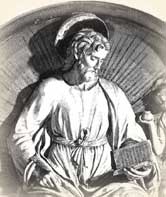
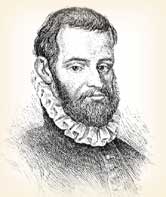

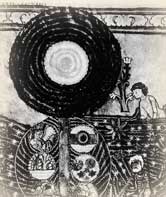

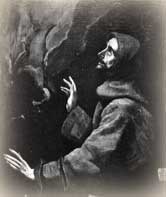
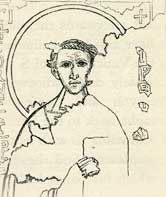

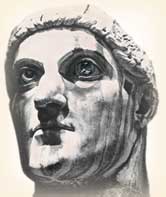 Suppose you are a survivor of an outlawed organization whose origins go back to around 1700, seventy-six years before America became an independent nation. "Tell the story of your people," you are urged.
Suppose you are a survivor of an outlawed organization whose origins go back to around 1700, seventy-six years before America became an independent nation. "Tell the story of your people," you are urged.






















